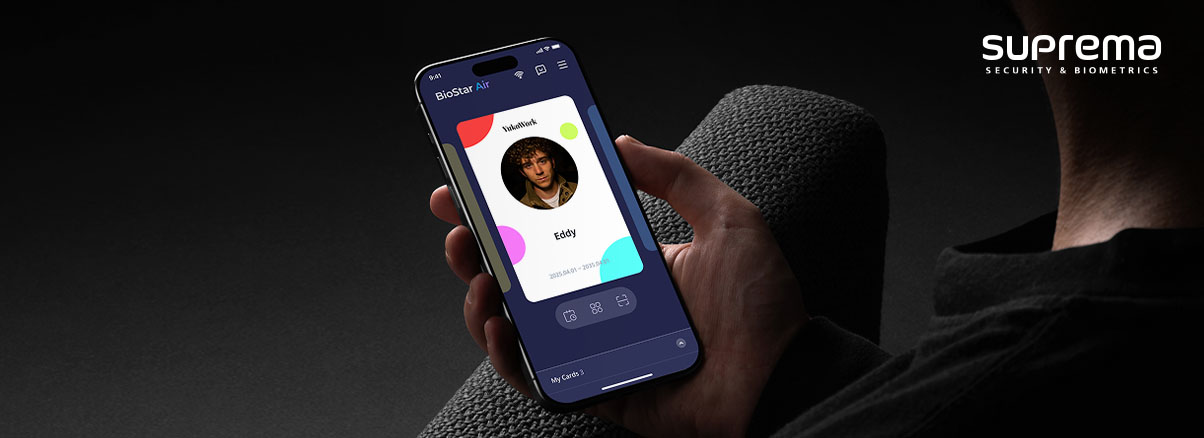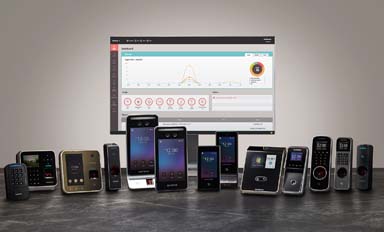- Blogs & Articles

In a previous article, we discussed Android and iOS for mobile access control, each with pros and cons. For mobile access control solutions providers, it doesn’t matter which platform the user is using. Offering solutions that support both operating systems to ensure easy access for all – that's the key.
Mobile access control entails the use of the user’s smart device to open doors. More and more, mobile access control has become popular due to its various advantages.
“Mobile access control combines security with convenience, transforming how businesses improve security by using the technology everyone carries – their mobile phones. Mobile devices offer a stronger, more flexible alternative to access control when compared to physical keys and cards, which can be lost or cloned. Because let's face it: no one forgets their phone. Smartphones also include advanced security features like biometric authentication and encryption in their access control protocols, providing additional protection against unauthorized access,” said Jeff Ross, Director of Product at acre security.
“Unlike cards, mobile credentials don’t get left at home, lost in a taxi, or borrowed by someone else. They can be issued and revoked remotely, and they reduce the burden on IT and security teams. For large enterprises or universities, the cost savings in reissuance and admin time are substantial,” said Hanchul Kim, CEO of Suprema.
‘Support customer’s ecosystem, not dictate it’
The core of a mobile access control solution is the smart device, for which two major operating systems currently exist: Android and iOS. Each has its own advantages. For example, iOS is known for its strong security features and offers good device management (MDM) tools for organizations to control and secure devices. Android phones, on the other hand, are more widely used globally and are available at a range of price points. That said, the choice between Android and iOS for mobile access control rests with the user’s own budget, needs and requirement.
But from the vendor’s perspective, it doesn’t matter what device the user is using. What’s more important is offering solutions that support both platforms so as to satisfy all users.
“Our job is to support the customer’s ecosystem, not dictate it. Most organizations adopted BYOD years ago, using mobile device management (MDM) tools to maintain security. That’s why we’ve focused on delivering a smooth experience for all users – no matter what phone they carry – and making credential issuance and revocation as simple and painless as possible for administrators,” Kim said.
Suprema’s mobile access control solutions include Suprema Mobile Access, which works with any backend access control system as long as it’s connected to Suprema readers; and BioStar Air, which is Suprema’s complete cloud-native solution combining credential issuance, access management, and device control into a unified web-based platform. What’s more important, the solutions work with both operating systems.
“Suprema Mobile Access credentials and BioStar Air work seamlessly on both Android and iPhone. We’ve built our solution from the ground up to be cross-platform, so end users can open doors with their preferred device,” Kim said.
He adds: “Suprema’s mobile solutions are platform-agnostic, so administrators can issue credentials without ever needing to ask, ‘What kind of phone do you use?’ That flexibility simplifies operations and removes unnecessary friction from the user experience. There’s no bottlenecks in issuance, no ‘iPhone vs. Android’ limitations, and no delays when someone gets a new phone. It’s secure, reliable, and consistent – regardless of platform.”
His remarks were echoed by Ross of acre, which offers the acre Wallet mobile access control solution that is compatible with Apple and Google Wallets and simplifies credential management by allowing remote issuance and cancellation. Combined with the acre Reader, users can simply present their phone for quick and efficient access.
“At acre, we offer compatibility with Apple Wallet and Google Wallet to gain access to your doors, ensuring users aren't locked into using a single OS in a landscape where multiple device brands are mainstream,” Ross said. “Acre's mobile solutions let users use Apple and Google Wallet on their mobile devices to access doors from anywhere in the world. This compatibility allows us to provide users with the best experience possible.”
Source: asmag












